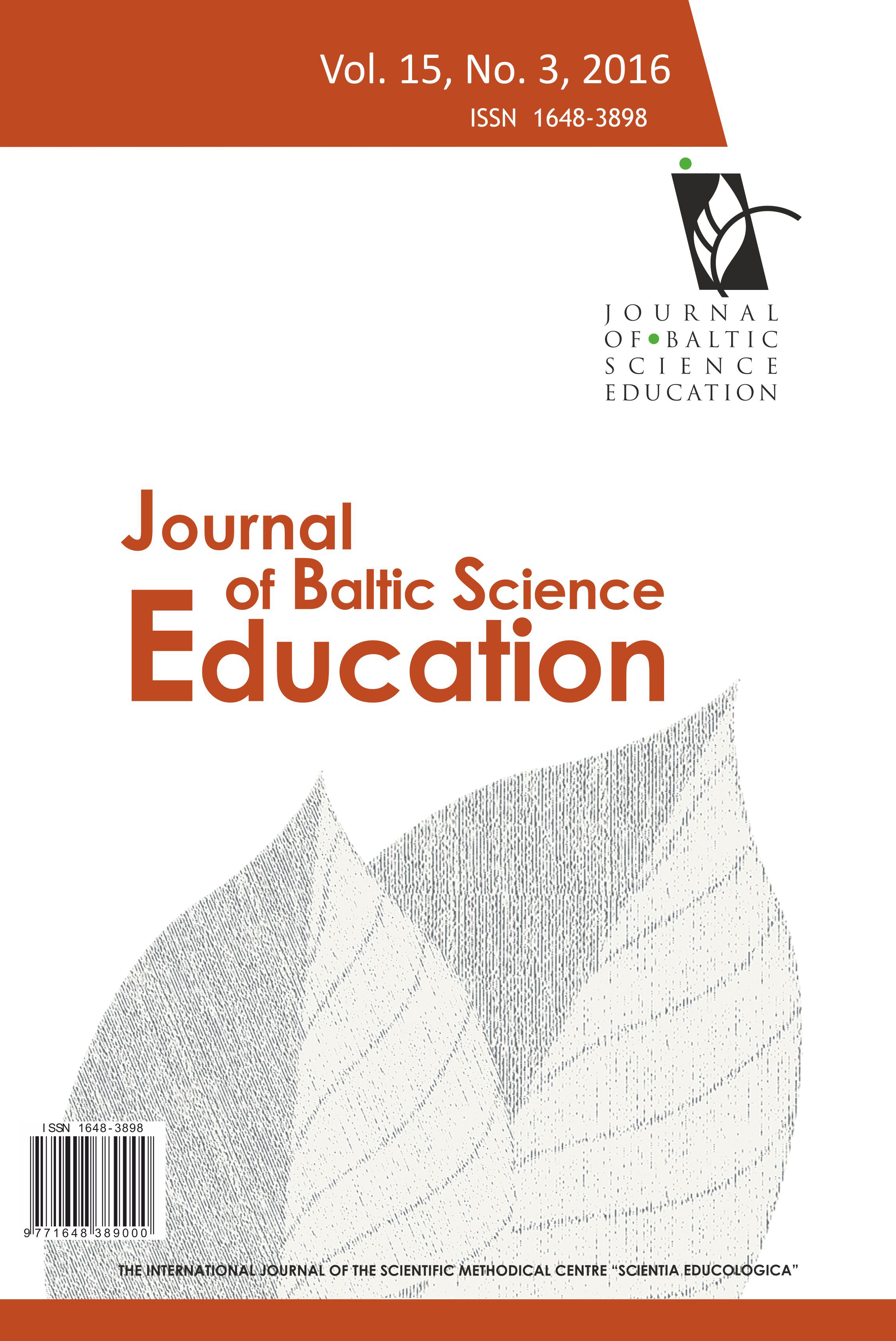CONTEXT-BASED QUESTIONS IN SCIENCE EDUCATION: THEIR EFFECTS ON TEST ANXIETY AND SCIENCE ACHIEVEMENT IN RELATION TO THE GENDER OF SECONDARY SCHOOL STUDENTS
CONTEXT-BASED QUESTIONS IN SCIENCE EDUCATION: THEIR EFFECTS ON TEST ANXIETY AND SCIENCE ACHIEVEMENT IN RELATION TO THE GENDER OF SECONDARY SCHOOL STUDENTS
Author(s): Namudar İzzet Kurbanoğlu, Fatma Koç NefesSubject(s): Education, Psychology, School education
Published by: Scientia Socialis, UAB
Keywords: context-based questions; conventional questions; science achievement; secondary school students; test anxiety;
Summary/Abstract: Context-based questions can be effective in reducing test anxiety and increasing science achievement. The purpose of this research was to determine the effects of context-based questions on the test anxiety and science achievement of secondary school students enrolled in a science course, in relation to gender. Seventy students who were found to have high levels of test anxiety were selected from the 185 seventh-grade students at a public school in Turkey. The Revised Test Anxiety Scale (RTAS) was used to measure the students’ test anxiety. The scores the students obtained in three different examinations were considered as indicators of their academic achievement. The analysis results showed that there was a statistically significant difference between the test anxiety and science achievement scores of the students who were given context-based questions and the corresponding scores of the students who were given conventional questions. However, there was no statistically significant difference between the main effect of gender and treatment and there was no gender interaction effect. These findings suggest that context-based questions can be considered as a better alternative to conventional questions for reducing students’ test anxiety and improving their science achievement.
Journal: Journal of Baltic Science Education
- Issue Year: 15/2016
- Issue No: 3
- Page Range: 382-390
- Page Count: 9
- Language: English

